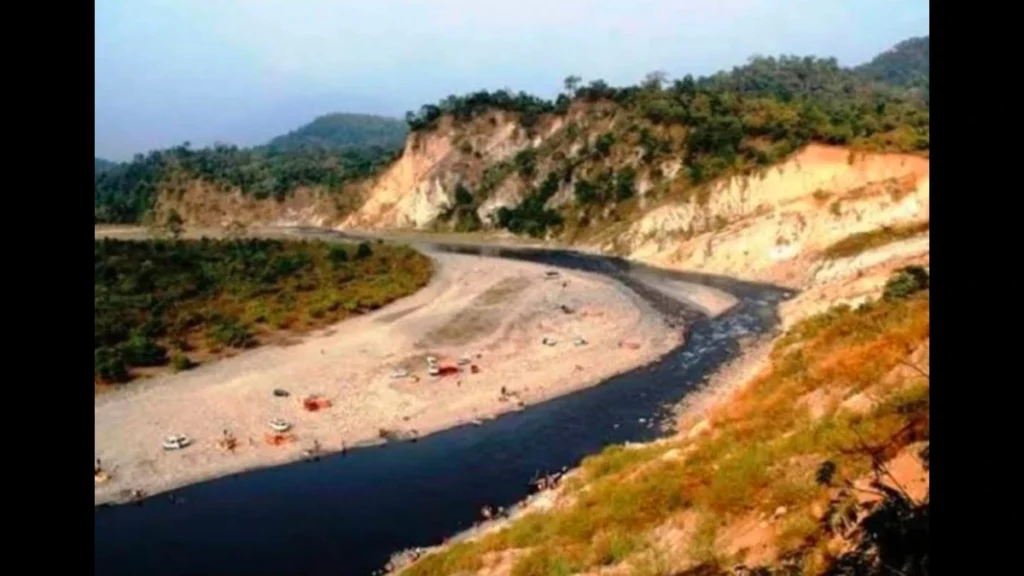Baksa District: ASSAM
“Baksa District: Explore the natural beauty, cultural diversity, and rich heritage of Assam’s hidden gem. Discover lush landscapes, wildlife sanctuaries, and vibrant communities in Baksa.”

Baksa District, situated in the northeastern state of Assam, India, is a region blessed with natural beauty and cultural diversity. Covering an area of approximately 2,485 square kilometers, this district is home to a vibrant tapestry of communities and ecosystems. History, geography, and socio-cultural fabric weave together to create a unique identity.
Geographically, Baksa District is characterized by its undulating terrain, with lush green hills and serene rivers winding through the landscape. The district is bounded by Bhutan to the north and the districts of Barpeta, Nalbari, and Kamrup to the south, west, and east, respectively. The Baksa River, which originates in Bhutan, flows through the district, serving as a lifeline for the local communities.
The diverse flora and fauna of this District make it a haven for nature enthusiasts. The district is home to several wildlife sanctuaries and reserved forests, including the Manas National Park, which is a UNESCO World Heritage Site. This park is renowned for its population of the Bengal tiger, Indian rhinoceros, and other endangered species. The lush forests and pristine rivers also attract a variety of migratory birds, making it a birdwatcher’s paradise.
Culturally, Baksa District is a melting pot of different communities. The indigenous Bodo people form a significant part of the population, and their rich cultural heritage is reflected in their festivals, dance forms, and traditional attire. The Bodos celebrate festivals like Bwisagu and Domashi with great fervor, showcasing their vibrant traditions.
Apart from the Bodos, the district is also home to various other ethnic groups, such as Assamese, Bengali, and Nepali communities, contributing to its cultural diversity. This mix of cultures adds to the richness of Baksa’s social fabric, creating an environment of harmony and inclusivity.
Agriculture plays a vital role in the district’s economy, with rice, jute, and tea being the major crops. Tea estates in Baksa produce some of Assam’s finest tea, contributing to the state’s reputation as a tea-producing hub. Additionally, the district is also known for sericulture, with silk production being an important economic activity.
While Baksa District is blessed with natural beauty and cultural richness, it faces its share of challenges. Infrastructure development and healthcare services in certain areas are areas that require attention. The government and local authorities are actively working to address these issues and improve the overall quality of life for residents.
In conclusion, Baksa District is a hidden gem in the northeastern part of India. Its stunning natural landscapes, cultural diversity, and rich history make it a destination worth exploring. Whether you’re a nature enthusiast, a cultural explorer, or simply seeking a tranquil retreat, This District has something to offer to everyone. As it continues to evolve and develop, this district holds the promise of a brighter future while preserving its unique heritage.
Famous Places in Baksa District
Baksa District in Assam, India, is home to several famous places that offer a glimpse into its rich cultural heritage and natural beauty. Here are some notable destinations to visit in Baksa District:
Manas National Park: This UNESCO World Heritage Site is one of the most famous attractions in Baksa. It’s renowned for its diverse flora and fauna, including the Bengal tiger, Indian rhinoceros, and various bird species. Visitors can enjoy safaris and nature trails in this pristine wilderness.
Barnadi Wildlife Sanctuary: Located on the banks of the Barnadi River, this sanctuary is a haven for wildlife enthusiasts. It’s known for its population of elephants, leopards, and various bird species. The lush greenery and serene ambiance make it a perfect spot for nature lovers.
Baksa River: The Baksa River, originating in Bhutan, flows through the district, offering opportunities for boating, picnics, and riverside relaxation. The scenic beauty of the river and its surroundings is a treat for the eyes.
Dewri Mandir: This ancient Hindu temple dedicated to Lord Shiva is a significant religious site in Baksa. It’s known for its unique architectural style and attracts devotees from near and far.
Barnagar Ruins: These historical ruins are remnants of the ancient city of Barnagar, which once thrived in the region. Exploring these archaeological remains provides insight into the area’s historical significance.
Rangia Tea Estate: Baksa District is known for its tea production, and a visit to Rangia Tea Estate offers a chance to witness the tea-making process firsthand. You can also savor some of the finest Assam tea here.
Boro Harisadhan Bil: This wetland area is a paradise for birdwatchers. It’s known for hosting a variety of migratory and resident bird species, making it a must-visit spot for ornithologists and nature photographers.
Bodo Villages: Interacting with the local Bodo communities in their traditional villages provides a unique cultural experience. You can witness their traditional dance forms, try their cuisine, and learn about their way of life.
Bwisagu Festival: If your visit coincides with the Bwisagu Festival celebrated by the Bodo community, don’t miss the opportunity to partake in the festivities. It’s a vibrant cultural celebration with traditional songs, dances, and rituals.
Eco-Tourism Activities: Baksa District promotes eco-tourism, offering activities like trekking, camping, and nature walks in its pristine forests and hills. These activities allow visitors to connect with nature and enjoy the tranquility of the region.
These famous places in Baksa District offer a blend of natural beauty, wildlife experiences, cultural immersion, and historical exploration. Whether you’re a nature enthusiast, history buff, or cultural explorer, Baksa has something captivating to offer.
Read More :-
